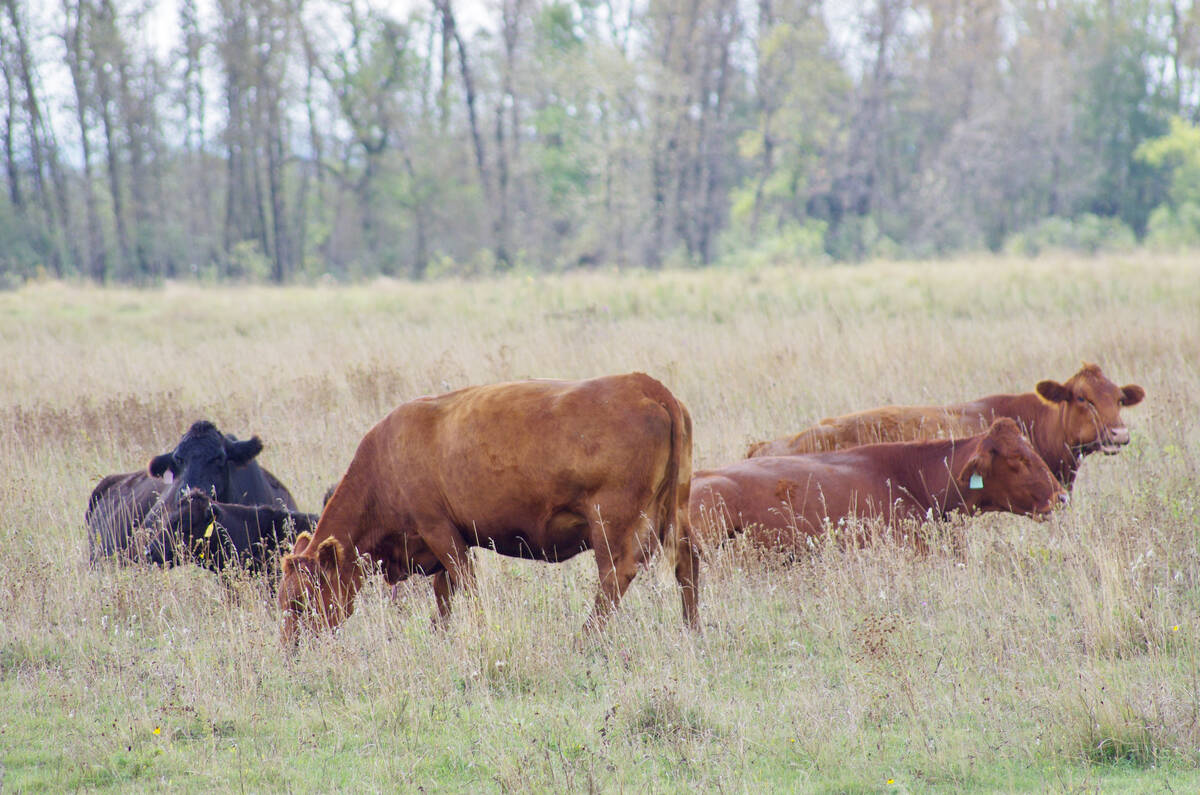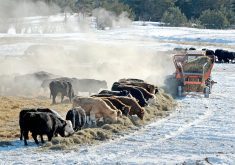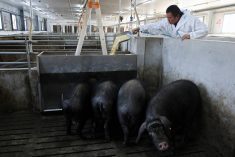Updated, July 22 — The outbreak of listeriosis that led to 22 people’s deaths in Canada last summer is found to have fed partly on an “insufficient focus” on food safety in the private and public sector.
Advance preparation for such a problem, an appropriate sense of urgency at the outset, and communication to the public and to health professionals were also all found lacking in the report by the federal government’s independent investigator, Sheila Weatherill.
Weatherill, the former CEO of Edmonton Capital Health, on Tuesday publicly released her report, which was commissioned in January by Prime Minister Stephen Harper in the wake of the outbreak that began the previous August.
Read Also

Trump signs proclamation increasing Argentine beef imports
U.S. President Donald Trump on Friday signed a proclamation to hike the country’s low-tariff imports of Argentine beef, though economists have said the attempt to lower costs for American consumers will likely have little impact on prices.
The outbreak involved a specific listeria monocytogenes strain that sickened 57 people in seven provinces from B.C. to New Brunswick, including 41 people in Ontario.
The strain was tracked back to prepared deli meats from Maple Leaf Foods’ Bartor Road meat plant No. 97B in Toronto.
Among those 57 cases, as of April 17 this year, the listeria strain in question was ruled to be the “underlying or contributing cause” in the deaths of 22 people, including 16 in Ontario alone.
Harper asked Weatherill to investigate the outbreak and assess how federal organizations and their “food safety partners” responded, she said Monday, before the report’s release.
Maple Leaf’s CEO Michael McCain on Tuesday praised the report as being “tough on Maple Leaf and our practices as it ought to be.”
“What we believed was a strong food safety program at the time was, quite simply, not good enough,” McCain wrote Tuesday on the company’s food safety blog following the report’s release.
“We lacked the scientific rigour, investigative substance and listeria quarantine nets that we have in place now. We cannot expect people to forget and neither will we. Ultimate accountability for last year’s tragedy rests with us.”
“Lack of understanding”
Weatherill’s report doesn’t lay all blame specifically with Maple Leaf or any other company or public agency but does dole out criticism up and down the food safety chain.
Federal Agriculture Minister Gerry Ritz, for one, said on the hog industry-sponsored program Farmscape Wednesday that the report makes it clear “last summer’s tragic events happened because a number of things went wrong, procedures to clean a specific piece of equipment that didn’t work, mandatory environmental testing and reporting had been canceled so it didn’t raise the red flags here that it should have.”
Ritz said Weatherill, during a briefing Tuesday, told him “the different levels of government and departments were like an orchestra that hadn’t practiced together.”
More specifically, Weatherill’s report cites an “insufficient focus on food safety among senior management in both the public and private domains.”
For example, she wrote, “even though there was evidence of contamination on production lines producing ready-to-eat meats months before the outbreak, these trends were not being monitored to identify the recurring presence of the bacteria.”
In the public sector, she wrote, “there was a lack of understanding about intergovernmental protocols to deal with such emergencies, which created confusion about who should do what and when . Government approval processes for new food additives and techniques, with a direct bearing on food safety, were not prioritized or fast-tracked.”
Also, “information did not always make its way to the senior ranks of the public service and company headquarters, which exacerbated these challenges.
“There were also cases of inadequate decision-making which was apparent, for example, in implementing a new program designed to improve food safety. In addition, some policies and directives were vague, leaving them open to interpretation, thus creating opportunity for problems.”
“People unprepared”
In terms of readiness, she wrote, “it appeared there was not enough advance planning and preparation on a number of fronts, which left people unprepared when the outbreak struck.”
As examples, she cited “the shortage of workers needed to handle surge capacity in times of emergency, summer vacation with substitutes who did not always understand their roles, the lack of exercises to sort out these issues in advance of an actual crisis, insufficient training for food inspectors charged with the new inspection procedures, and confusion over where lab samples should be sent.”
Weatherill also said she saw a “lack of a sense of urgency at the outset of the outbreak.” For example, she said, “key pieces of information, and even personnel” were unavailable over a given weekend, delaying decisions until the start of the following work week.
Also key, she said, were “the differing views on when to warn the public about the potential harm from certain foods. Once the gravity of the situation was recognized, emergency operations centres were not immediately activated, if at all. As well, some who might have been prominent on the national stage were not as visible as expected.”
“Confused”
The fourth area that left room for improvement, Weatherill wrote, was communications, not only to members of groups at increased risk for listeriosis, but to health professionals and the general public.
“Canadians generally do not understand which level of government, let alone what organization, has specific jurisdictional responsibility for public health or food safety,” she wrote.
“What they do know is that they want someone to explain to them, simply and clearly, what is happening and what they should be doing to protect themselves. Subsequent polling, along with the personal anecdotes of family members and others who shared their views during this investigation, indicated that communications about the outbreak did not provide the information they needed.”
The agreement, she said, was “near unanimous” that Canadians were confused following news of the food recalls.
“Clearly and emphatically”
Among Weatherill’s specific recommendations for changes to be made, she included:
- full disclosure to Canadian Food Inspection Agency staff from federally inspected meat processors of any threat to food safety — meaning the companies shouldn’t wait for CFIA to come to them for information;
- designating the federal Public Health Agency as the lead agency, both at the national (multi-provincial) and federal (multi-departmental) levels, in such cases;
- that government, in setting its agenda this fall, should “clearly and emphatically commit to the safety of food as one of its top priorites;”
- increasing the use and timing of health advisories and precautionary warnings;
- a listeria policy at Health Canada that “outlines clearly and concisely the expected results for all identified food products where listeria is a potential threat to human health;”
- revamping the designs and recommended cleaning methods for food processing equipment, so as to allow “thorough cleaning and disinfection” and to “eliminate to the fullest extent possible all areas likely to harbour pathogens;”
- an approval process at Health Canada that can fast-track helpful new food additives and technologies;
- a resources audit at CFIA, to be done by third-party experts;
- prompt disclosure by CFIA of the results of its investigation of an implicated food plant, in cases where deaths or serious illnesses have occurred;
- encouragement for organizations such as care homes and hospitals to adopt food safety practices aimed at “vulnerable populations;” and
- a commitment by government to report back within two years on the implementation of her report’s recommendations.
The federal opposition Liberals said Tuesday that Weatherill’s report makes it clear the federal government’s handling of the outbreak was “botched and disorganized,” but added that “the full extent of how it was handled may never be known because of the investigator’s limited mandate.”
Liberal agriculture critic Wayne Easter reiterated Tuesday in the party’s release that the government gave Weatherill an insufficiently “limited mandate” for an inquiry conducted in private.
“What was really needed was a full, independent public inquiry, headed by an investigator with the power to compel witnesses to testify and evidence to be produced,” he said. “Canadians deserve nothing less.”














